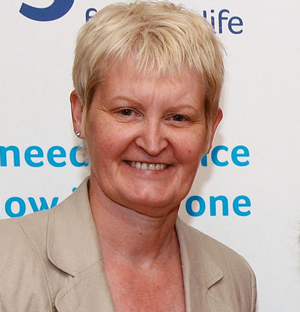Age NI: fixing social care
 Age NI believes Northern Ireland’s social care system is broken and a new revised system is long overdue.
Age NI believes Northern Ireland’s social care system is broken and a new revised system is long overdue.
The Compton Review has provided a much needed platform to debate social care provision in Northern Ireland because the situation for older people in receipt of social care is already at crisis point and a new revised system is long overdue.
Age NI believes social care is the linchpin for wider health care provision, if we get it right everything else will fall into place. A system promoting low level services that enables older people to remain in their homes for longer and reduces hospital admissions, will ultimately be cost-effective and result in better outcomes for those in later life.
However the debate on social care provision cannot solely be lead by decision makers, it must also involve the wider Northern Ireland public because ageing affects us all. It is imperative that society takes the time to consider what quality of social care it can expect as we all grow older and what outcomes social care services must achieve.
Debate
The scope of care services also needs to be debated from ‘that little bit of help’, through to nursing and end of life care. The cost of the system must be factored into discussion but this cannot happen until we decide on quality, outcomes and the scope of services. Funding is important but it cannot be the only driver.
This debate must be framed in the context of our ageing population as the number of older people, particularly those over 85 who are most likely to need social care, is also set to increase. By 2021, the number of persons aged 85 and over in Northern Ireland is projected to rise by 67 per cent to 47,900.
Figures from the Department of Health, Social Services and Public Safety estimate that the cost of treating older people is expected to increase by 30.6 per cent over the next ten years. Despite these inflationary pressures, planned funding for the Elderly Programme of Care (POC 4) only grew by £6 million or 1.1% in 2009-10. With a real cut in the DHSSPS budget of around 2.7 per cent by 2014, it is unlikely that the funding needed over the next ten years to treat older people will be available.
Prevention
Age NI believes that with effective treatment, fair and equal access to services, appropriate levels of funding and prevention strategies, older people can continue to experience good health. By staying well and feeling good, older people are more likely to play an active role in their communities, contribute to society and live independently. The idea that preventing ill-health is a way of controlling costs is not new to health and social care. However, there has been no indication of a change in thinking or a shift in resources to give a higher priority to prevention.
There is clear evidence, however, that projects which promote early intervention and independence can produce early outcomes and greater efficiency for health and social care. A recent evaluation of the Partnerships for Older People’s Projects (POPPS) in Great Britain demonstrated that these projects led to cost reductions in secondary, primary and social care as well as an increase in health related quality of life. In particular, the projects lead to a 47 per cent reduction in overnight hospital stays and the use of accident and emergency departments was reduced by 29 per cent.
Vision
Through our work with older people and key stakeholders we have developed a vision of quality integrated social care that recognises the rights, aspirations and diversity of us all, and is based on the right to live with dignity, independence, security and choice. At the heart of our vision is a system that enhances well-being and independence, so that older people can continue to engage socially and maintain self-esteem, dignity and purpose.
To secure this vision, a shift in the language of care is needed, from one of services to one of needs and outcomes. This means that assessments should be a consideration of a person’s social care needs and the outcomes that they wish to achieve. The focus should not be on the person’s suitability for a particular service. Incorporating human rights and equality principles into social care can reinforce the importance of these broader issues.
Age NI believes that the outworking of the Compton Review affords decision makers a once in a lifetime opportunity to reform social care. We are calling on politicians to give the commitment and leadership that is needed to enact radical reforms to deliver the transformational change urgently needed in the provision of social care.
Age NI believes Northern Ireland’s social care system is broken and a new revised system is long overdue.
The Compton Review has provided a much needed platform to debate social care provision in Northern Ireland because the situation for older people in receipt of social care is already at crisis point and a new revised system is long overdue.
Age NI believes social care is the linchpin for wider health care provision, if we get it right everything else will fall into place. A system promoting low level services that enables older people to remain in their homes for longer and reduces hospital admissions, will ultimately be cost-effective and result in better outcomes for those in later life.
However the debate on social care provision cannot solely be lead by decision makers, it must also involve the wider Northern Ireland public because ageing affects us all. It is imperative that society takes the time to consider what quality of social care it can expect as we all grow older and what outcomes social care services must achieve.
Anne O’Reilly is Chief Executive of Age NI. For further information on the work of Age NI contact 028 9024 5729 or visit www.ageni.org. You can also follow Age NI on Facebook www.facebook.com/agenicharity or on Twitter @Age_NI






